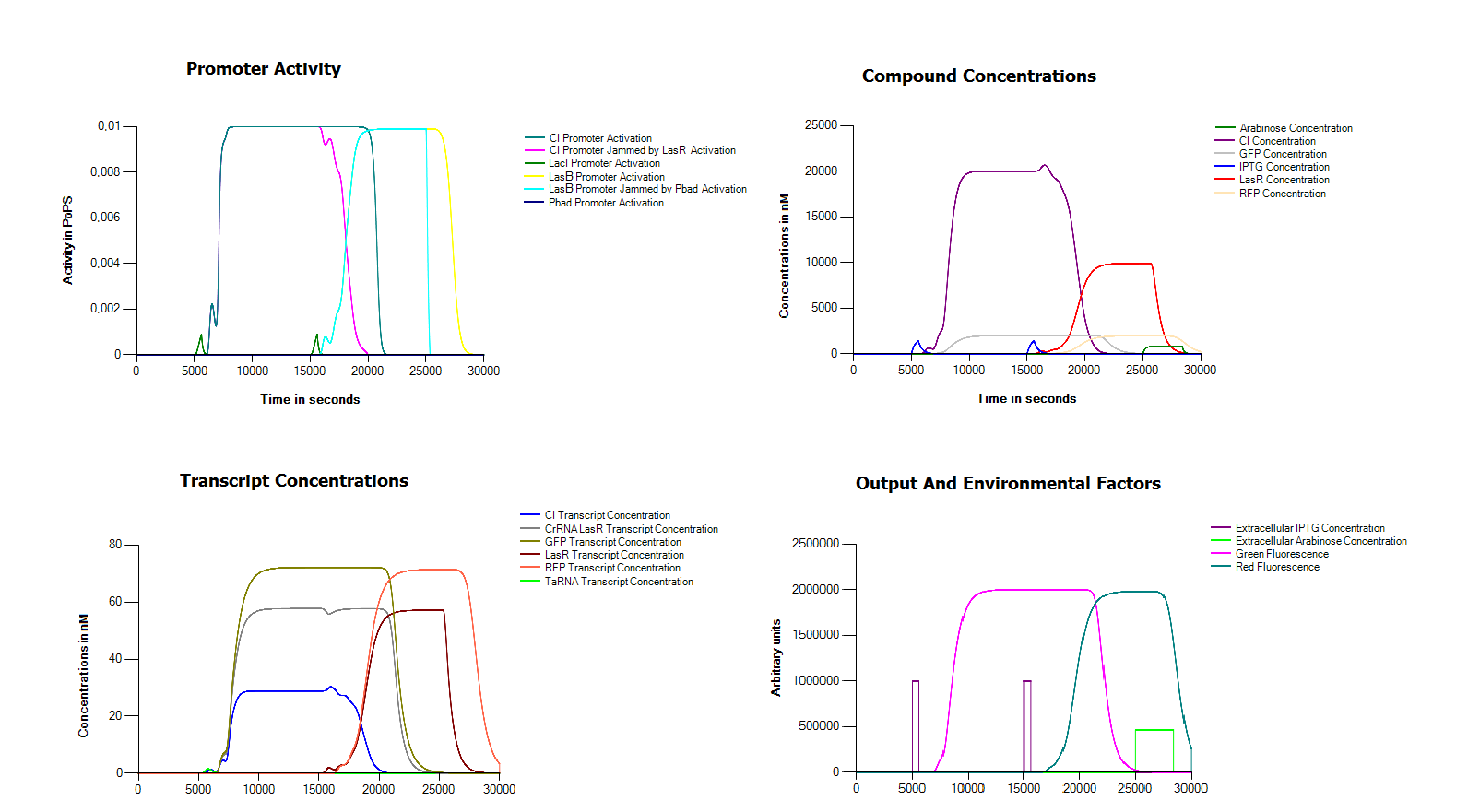Team:Groningen/modeling results
From 2011.igem.org
| Line 7: | Line 7: | ||
| - | =Fitting= | + | ==Fitting== |
In its most simple use the Cumulus system can be used to characterize promoters. The example below shows how this can be done for the Pbad Promoter with flowcytometry data. The measurements points in this case are generated by comparing as measurement of an unknown part against two measurements from a well characterized one. | In its most simple use the Cumulus system can be used to characterize promoters. The example below shows how this can be done for the Pbad Promoter with flowcytometry data. The measurements points in this case are generated by comparing as measurement of an unknown part against two measurements from a well characterized one. | ||
| Line 13: | Line 13: | ||
movie | movie | ||
| - | =Visulisation of out model= | + | ==Visulisation of out model== |
Because we did not manage to finish our model we decided to try to model our system in the Cumulus system. One of the main problems in assembling our system seemed to be the defective hybB promoter. For this reason in this model we replaced it with a LacI promoter. In order to operate our system we also assume that we can remove both arabinose and IPTG from the medium in an effcient way. | Because we did not manage to finish our model we decided to try to model our system in the Cumulus system. One of the main problems in assembling our system seemed to be the defective hybB promoter. For this reason in this model we replaced it with a LacI promoter. In order to operate our system we also assume that we can remove both arabinose and IPTG from the medium in an effcient way. | ||
| - | [[File:Groningen2011FullSimulation.png|thumb|centre|600px|This figure shows a simulation of our full model. | + | [[File:Groningen2011FullSimulation.png|thumb|centre|600px|This figure shows a simulation of our full model. As you can see in the bottomleft corner we induce twice with IPTG for ten minutes, once after 5000 seconds and a second time after 15000 seconds, finally reset the system with a long exposure to arabinose in the medium after 25000]] |
| - | =Speedup= | + | |
| - | The Cumulus system allows for large speedups by parallelization through both the cloud and added machines. | + | |
| + | ==Speedup= | ||
| + | The Cumulus system allows for large speedups by parallelization through both the cloud and added machines. We tried this with some typical cloud intances and some local machines in the lab, the results are listed below. The benchmarking was done the the Pbad characterization task described above. | ||
{{FooterGroningen2011}} | {{FooterGroningen2011}} | ||
Revision as of 12:11, 21 September 2011
Results
Fitting
In its most simple use the Cumulus system can be used to characterize promoters. The example below shows how this can be done for the Pbad Promoter with flowcytometry data. The measurements points in this case are generated by comparing as measurement of an unknown part against two measurements from a well characterized one.
movie
Visulisation of out model
Because we did not manage to finish our model we decided to try to model our system in the Cumulus system. One of the main problems in assembling our system seemed to be the defective hybB promoter. For this reason in this model we replaced it with a LacI promoter. In order to operate our system we also assume that we can remove both arabinose and IPTG from the medium in an effcient way.
=Speedup
The Cumulus system allows for large speedups by parallelization through both the cloud and added machines. We tried this with some typical cloud intances and some local machines in the lab, the results are listed below. The benchmarking was done the the Pbad characterization task described above.
 "
"


